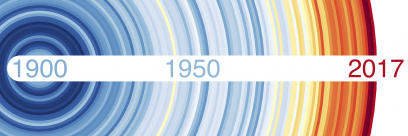Episodes
S02E02 – H4F talk with Milo Propst: Environmentalism of the 99%
In third episode this season H4F talk with Milo Probst, a PhD candidate from the University of Basel. Milo has a lot to say about ecological emancipation, the history of social and political ideas and how to draw effectively from history of activism for better imaginable futures. He reminds us of the fact that there is always something to actually «do». If you read German, check out his fantastic book «Für einen Umweltschutz der 99%: Eine historische Spurensuche», published by Nautilus.
S02E02 – H4F talk with Kimberly Aiken: ASOC, different knowledges and meaningful policy work
For the second episode this season we are joined by Kimberly Aiken, a research and policy associate for the Antarctic and Southern Ocean Coalition (ASOC), to discuss the important work of ASOC and the need do understand and reconcile different forms of academic and non-academic knowledge for policy work. Kimberly’s research passions are the two rapidly melting poles. So we wanted to learn how she translates her personal caring into meaningful policy work. For more information about ASOC and Kimberly’s work click here.
S02E01 – H4F talk with Anne Pasek: Carbon and Sustainable Academia
Our second series sees H4F in conversation with Anne Pasek to talk about all things carbon, work at intersections of climate communication, environmental humanities and STS, and how we might imagine more sustainable academic futures. Anne Pasek is Assistant Professor in the Department of Cultural Studies and the School of the Environment at Trent University, as well as the Canada Research Chair in Media, Culture and the Environment. Take a look at her current research projects here.
SEASON 1
S01E04 – H4F talk with Dania Achermann: Ice cores, small states and global climate change
For our final talk of the series, H4F chat with Dania Achermann on “Histories of Climate Science.” We talk about Dania’s research on ice-core paleoclimatology and the cultural-political factors that shape how we know and understand climate sciences.
Dania Achermann (she/her) is Junior Professor of Historical Science and Technology Studies at the University of Wuppertal (IZWT). She currently leads the Ambizone project “Ice Cores, Small States and the Global Climate Change: The Rise of a New Scientific Discipline,” which is funded by the Swiss National Science Foundation.
S01E03 – H4F talk with J.T. Roane: Black Ecologies – Amplifying vulnerable perspectives in activism
For our third talk, H4F are in conversation with J.T. Roane about our topic “A History of Environmental Activism”. We talk about Black Ecologies, the codependency of ecocide and racism, and the (historical) role of Black anti-growth activism.
J.T. Roane (he/him) is Assistant Professor of African and African American Studies in the School of Social Transformation at Arizona State University. He currently serves as the lead of the Black Ecologies Initiative at ASU’s Institute for Humanities Research. Take a look at his current research projects and his publications here.
For our second talk, H4F are joined by Asmae Ourkiya for our topic: “Science is key… but what about the Humanities?” We talk about ecofeminism, social justice and new perspectives on the Irish Great Famine (1840s/50s).
Asmae Ourkiya (they/them) is a Moroccan award-winning researcher and writer who is currently pursuing their doctoral degree in Ecofeminism at Mary Immaculate College. Take a look at their research and projects here.
S01E01 – H4F talk with Simon Schaffer : How did we get here?
To kickstart the series, H4F are joined by Simon Schaffer for our topic: What can we learn from history about climate change? How did we get here? How does it affect our research and teaching?
Simon Schaffer (he/him) is Professor of the History of Science at the University of Cambridge. His research addresses the practices, materials and organisation of scientific inquiry between the seventeenth and nineteenth centuries, including studies of astronomy, natural philosophy, technology and the physical sciences. He is currently a co-investigator on the Leverhulme Project “Making Climate History.”
